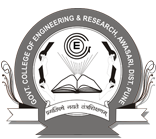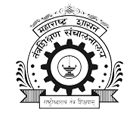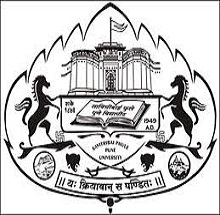Vision, Mission and Program Educational Objectives
Institute Vision
Institute Mission
Department Vision
Department Mission
PROGRAM OUTCOMES:
Program Educational Objectives (PEOs)
Program Specific Objectives (PSOs)
A graduate of Instrumentation and Control Engineering program will demonstrate
| "Educational institution for Empowerment through technological excellence towards sustainable development" |
| 1. Value based and demand driven education using best practices. |
| 2. Promotion of Research, Innovation and Entrepreneurship |
| 3. Capability to face Local and Global challenges |
| 4. Commitment to sustainable solutions in services of Society |
| "Enrich technological competency in the field of Instrumentation and Control to meet the global industrial and social challenges". |
| M1 | Develop multidisciplinary approach to enhance the employability and entrepreneurship. |
| M2 | Inculcate sound technical knowledge, along with managerial and soft skills. |
| M3 | Prepare for higher studies, research and innovations. |
| M4 | Train to undertake global challenges by adapting safe practices |
| PO1 | Engineering knowledge: Apply the knowledge of mathematics, science, engineering fundamentals, and an engineering specialization to the solution of complex engineering problems. |
| PO2 | Problem analysis: Identify, formulate, review research literature, and analyze complex engineering problems reaching substantiated conclusions using first principles of mathematics, natural sciences, and engineering sciences. |
| PO3 | Design/Development of solutions: Design solutions for complex engineering problems and design system components or processes that meet the specified needs with appropriate consideration for the public health and safety, and the cultural, societal, and environmental considerations. |
| PO4 | Conduct investigations of complex problems: Use research-based knowledge and research methods including design of experiments, analysis and interpretation of data, and synthesis of the information to provide valid conclusions. |
| PO5 | Modern tool usage: Create, select, and apply appropriate techniques, resources, and modern engineering and IT tools including prediction and modeling to complex engineering activities with an understanding of the limitations. s |
| PO6 | The Engineer and society: Apply reasoning informed by the contextual knowledge to assess societal. Health, safety, legal and cultural issues and the consequent responsibilities relevant to the professional engineering practice. |
| PO7 | Environment and sustainability: Understand the impact of the professional engineering solutions in societal and environmental contexts, and demonstrate the knowledge of, and need for sustainable development. |
| PO8 | Ethics: Apply ethical principles and commit to professional ethics and responsibilities and norms of the engineering practice. |
| PO9 | Individual and team work: Function effectively as an individual, and as a member or leader in diverse teams, and in multidisciplinary settings. |
| PO10 | Communication: Communicate effectively on complex engineering activities with the engineering community and with society at large, such as, being able to comprehend and write effective reports and design documentation, make effective presentations, and give and receive clear instructions. |
| PO11 | Project management and finance: Demonstrate knowledge and understanding of the engineering and management principles and apply these to one’s own work, as a member and leader in a team, to manage projects and in multidisciplinary environments. |
| PO12 | Life-long learning: Recognize the need for, and have the preparation and ability to engage in independent and life-long learning in the broadest context of technological change. |
| PEO 1 | To achieve the ability to solve problems related with Instrumentation and Control Engineering using knowledge of mathematics, basic sciences, relevant engineering disciplines, and skills developed during graduation studies. |
| PEO 2 | To develop the inter-disciplinary skills with professional ethics to analyze and solve the engineering issues towards sustainable development. |
| PEO 3 | To promote an innovative approach, concern for the environment and safety while working as a professional. |
| PEO 4 | To build up interpersonal skills, leadership, team spirit and entrepreneurship qualities for successful career along with life-long learning. |
A graduate of Instrumentation and Control Engineering program will demonstrate
| PSO 1 | Real Time Problems: To develop with strong foundation in mathematical and core instrumentation fundamentals necessary to identify, formulate, solve and analyze the real time Instrumentation problems. |
| PSO 2 | Core Competency: To inculcate comprehensive technique form Instrumentation and Control field to ensure core competency in automation and process control. |
| PSO 3 | Professional and Managerial Skills: To practice the professional and managerial skills to plan and execute the multidisciplinary projects. |
Developed & Managed by Government College of Engineering & Research Avasari ,Pune.
Web-Information-Manager (Website Content Managed by Computer Engineering Department)
Security Policy | Hyperlinking Policy | Terms & Conditions | Privacy Policy | Copyright Policy | CAP | CMAP | CRP | Help
Web-Information-Manager (Website Content Managed by Computer Engineering Department)
Security Policy | Hyperlinking Policy | Terms & Conditions | Privacy Policy | Copyright Policy | CAP | CMAP | CRP | Help
Website last updated on:









